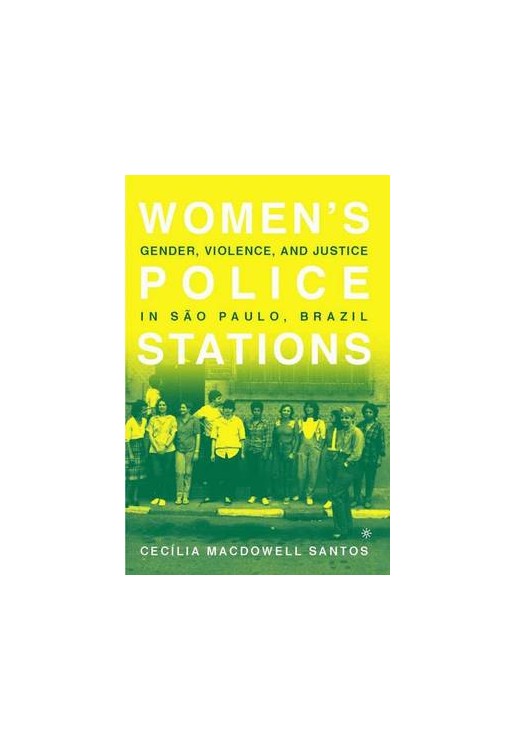Women's Police Stations examines the changing and complex relationship between women and the state, and the construction of gendered citizenship, using women's police stations in Sao Paulo. These are police stations run exclusively by police women for women with the authority to investigate crimes against women such as domestic violence, assault and rape. Sao Paulo was the home of the first such police station, and there are now more than 250 women's police stations throughout Brazil. Cecilia MacDowell Santos examines the importance of this phenomenon for the first time, looking at the dynamics of the relationship between women and the state as a consequence of a political regime, and exploring the notion of gendered citizenship. 'A unique opportunity to explore the relationship between feminist mobilization, the state, and constructions of violence against women.' - Nancy Naples, University of California 'An important and much-needed book about the evolving relation between Brazil's male-oriented justice system, feminist activism and ordinary citizens' understandings of gender and women's rights. Santos takes her readers inside the world of Sao Paulo's women's police stations, where female police officers with varying ideas about police work encounter a diverse citizenry that has suffered from sexual violence. This is a story about Brazil's experiment in democratization, as it works on the ground.' - Edward Telles, University of California 'The complex and contradictory evolution of gender politics in contemporary society is beautifully captured in Cecilia MacDowell Santos rich and compelling ethnographic observations of Brazil's new women's police stations. Santos' analysis of the interplay of the state (including police women), civil society (most especially feminist NGOs) and individual women seeking justice is original, innovative and theoretically sophisticated. Analysts of gender, students of the state and activists alike will find her work insightful and illuminating.' - Peter Evans, Marjorie Meyer Eliaser Chair of International Studies, University of California at Berkeley
Bringing Interests Back In: Re-theorizing the State and Gender via Women's Police Stations The Birth of Police Stations in Defense of Women: Gendered Democratization & Criminalization of Violence Against Women From Women/Wives to Gender: The Feminist Discourse on Violence Against Women Since the 1970s Policewomen x Policewomen x Policewomen: State Agents' Interests, Identities and Relations With Feminism Contradictory Gendered Citizenship: The Exclusive Construction of Gender in Women's Police Stations Conclusions: Interrogating the Construction of Interests: Towards a More Inclusive Approach to the State and Gendered Citizenship


